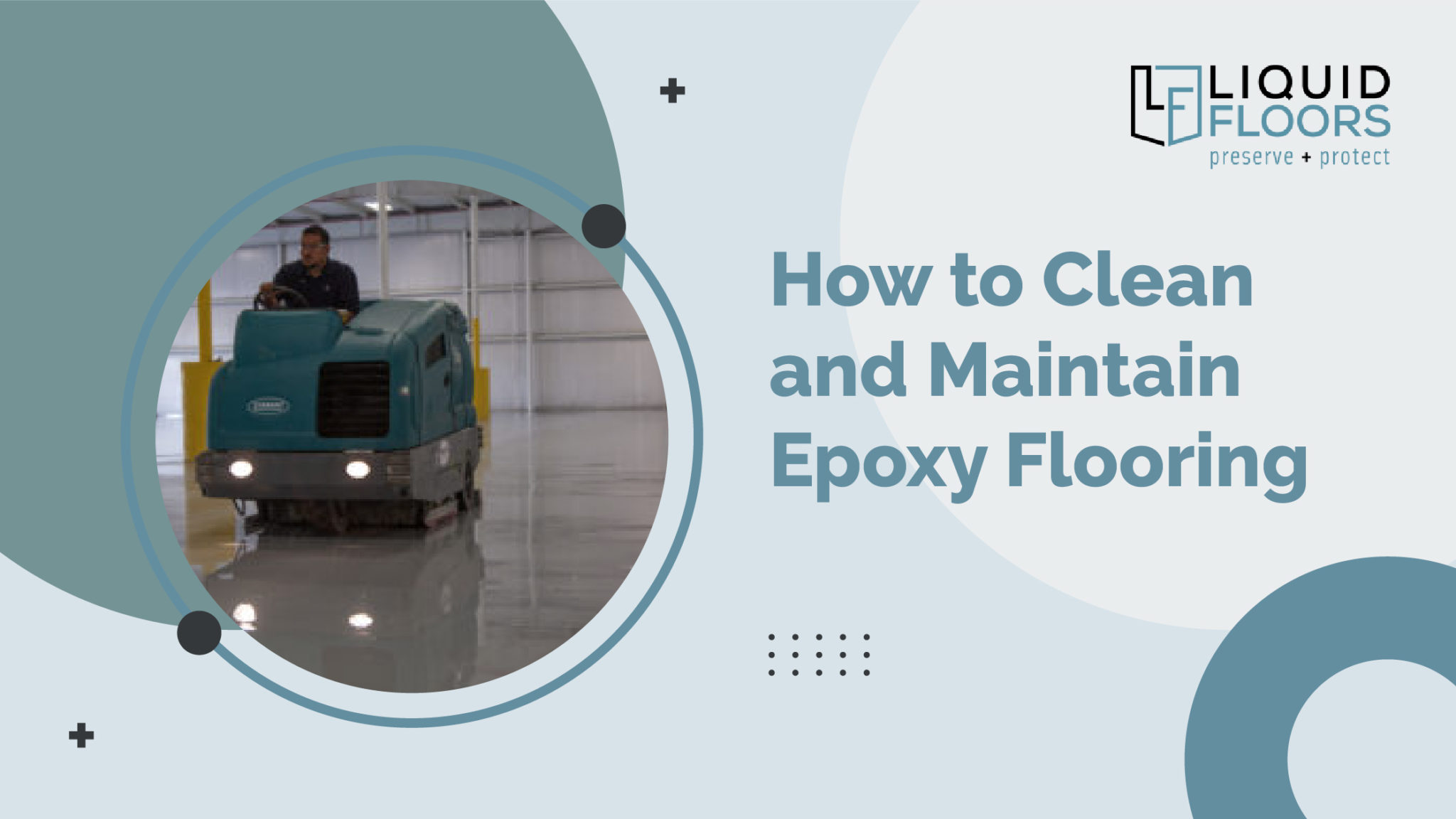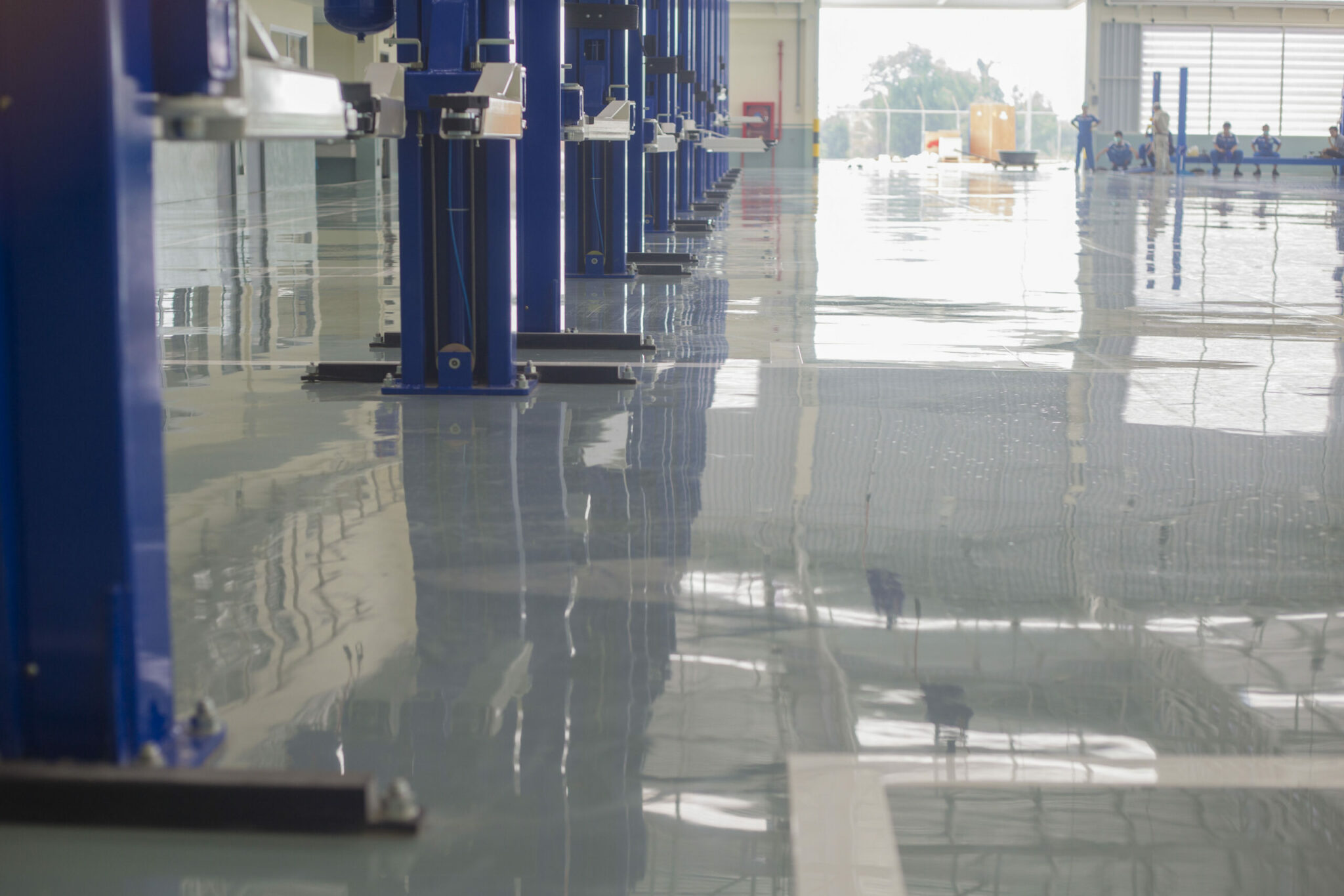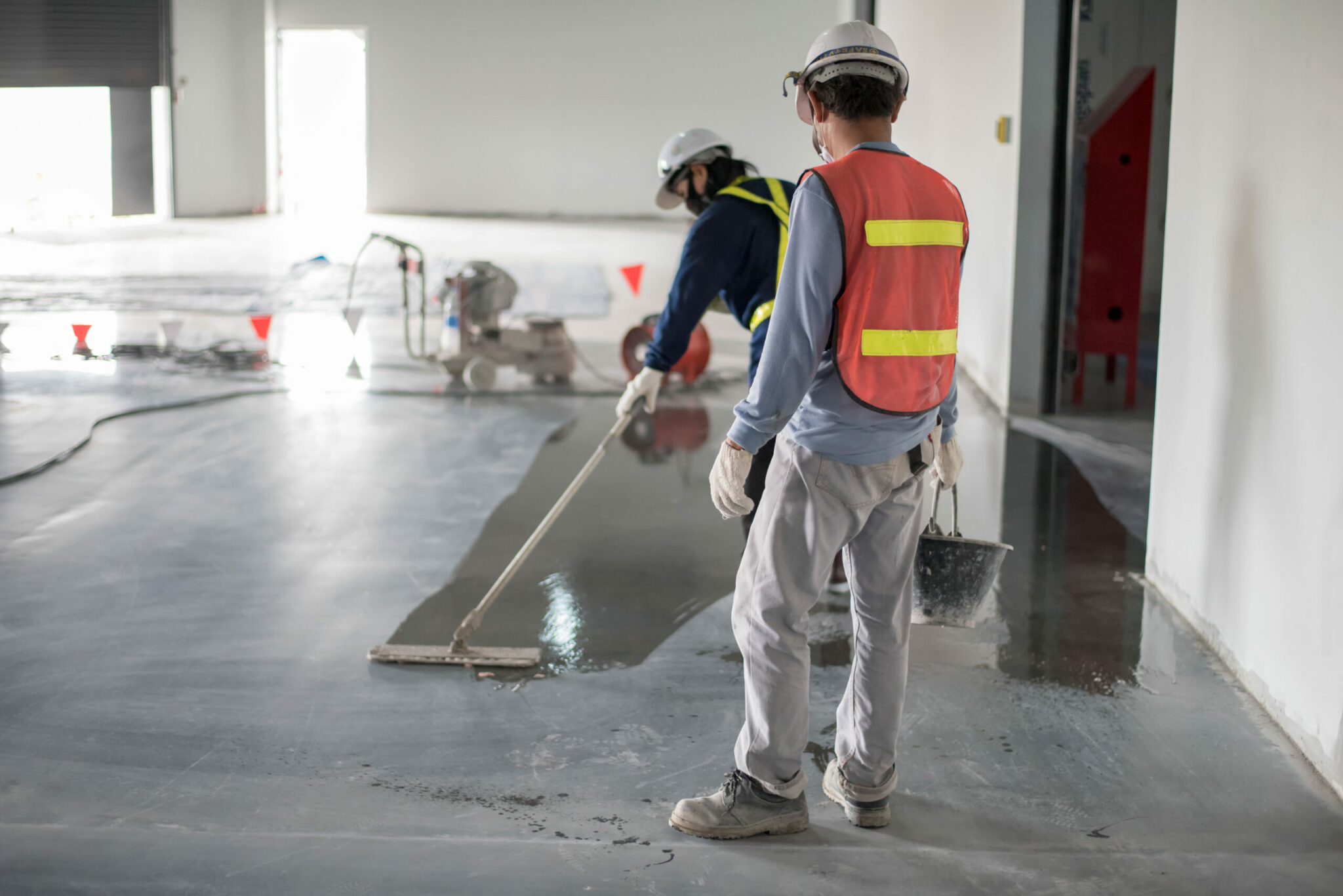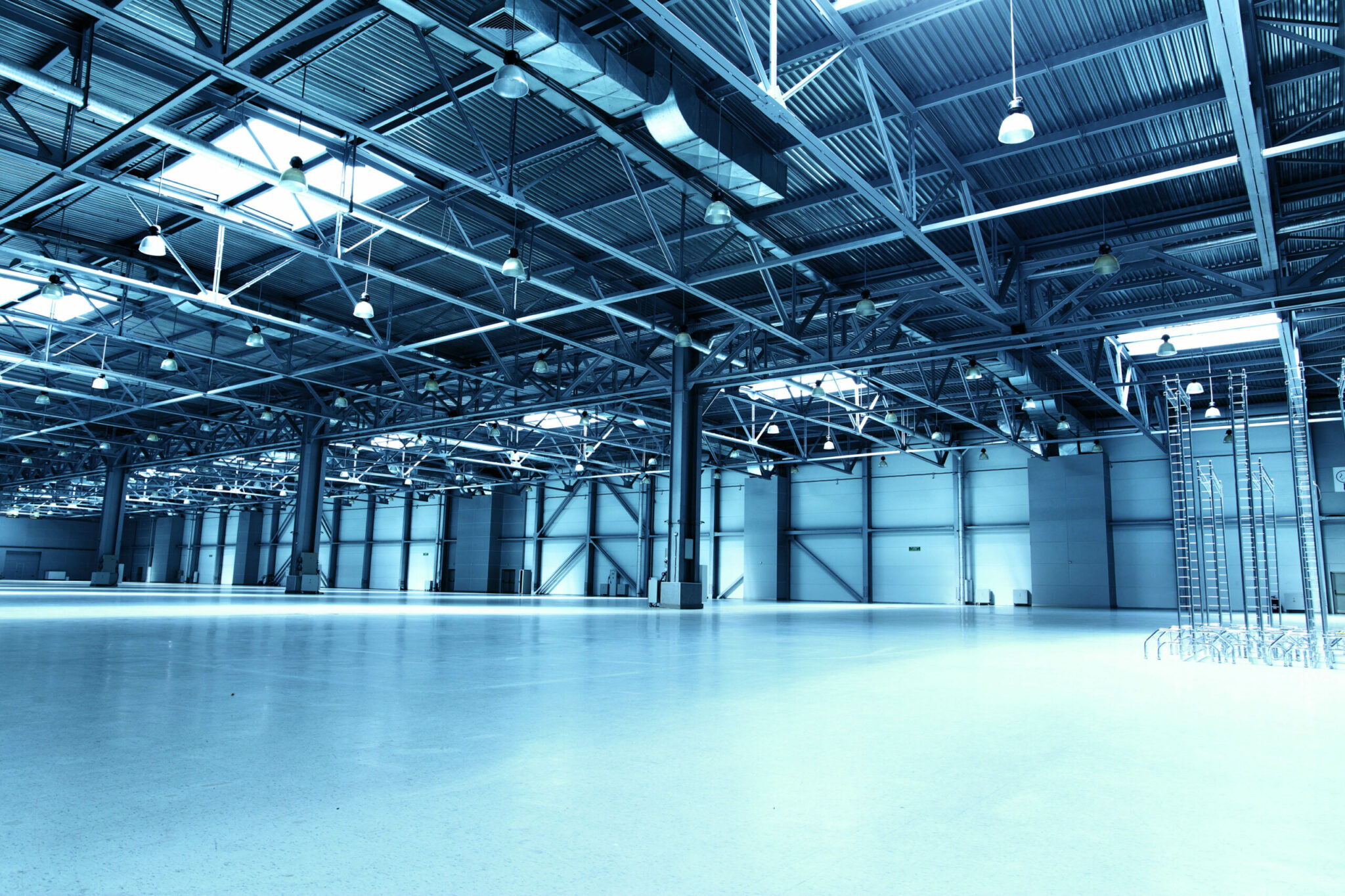Epoxy floors have long been the go-to flooring for manufacturing facilities, warehouses, restaurants, retail stores, and a large variety of other venues. It’s known for its easy installation, durability, and overall ease of maintenance.
So how exactly do you keep this type of floor in its prime condition and what’s the upkeep like? Let’s review the best cleaners and maintenance techniques for taking care of your epoxy floors.
The Maintenance Plan
Epoxy coatings are very durable and can withstand a lot of traffic and wear and tear. Just like any other investment in your facility, correct upkeep will extend the life of your floor and its coating. Here are a few things to keep in mind for daily, weekly, and yearly maintenance.
Daily Maintenance
In terms of daily maintenance, epoxy floors are pretty low-key. They don’t need much, but a daily sweep and mop should be part of the cleaning routine. By removing the presence of any small particles, you’ll keep the floor free of scratches and reduce wear and tear.
If your facility uses harsh or erosive chemicals, it’s important that any spills are cleaned up as soon as possible. If certain chemicals aren’t cleaned up in a timely manner, they will begin to erode and damage the floor permanently.
Weekly Maintenance
A thorough scrubbing of the floor every week will ensure the epoxy coating has a clean, smooth surface. Depending on the amount of traffic your floor sees, a bi-weekly scrubbing may be necessary. Avoid using any hard bristle brushes, as they will damage your flooring.
Yearly Maintenance
While these floors are extremely durable and can withstand a lot of wear and tear, it is still possible they’ll experience various surface maladies. Be on the lookout for large stains, scratches, gouges, and cuts in the coating.
The key to these problems is not to ignore them but to treat them as soon as they are noticed. If you’re unsure how to handle the stain, scratch, or cut, be sure to check in with your floor installer for the best way to fix the issue.
When To Recoat an Epoxy Floor
It’s important to thoroughly inspect your flooring before jumping in and deciding to recoat it. Not all epoxy flooring needs to be recoated, and epoxy-coated floors don’t always have to be ground down to the concrete or replaced with a new layer.
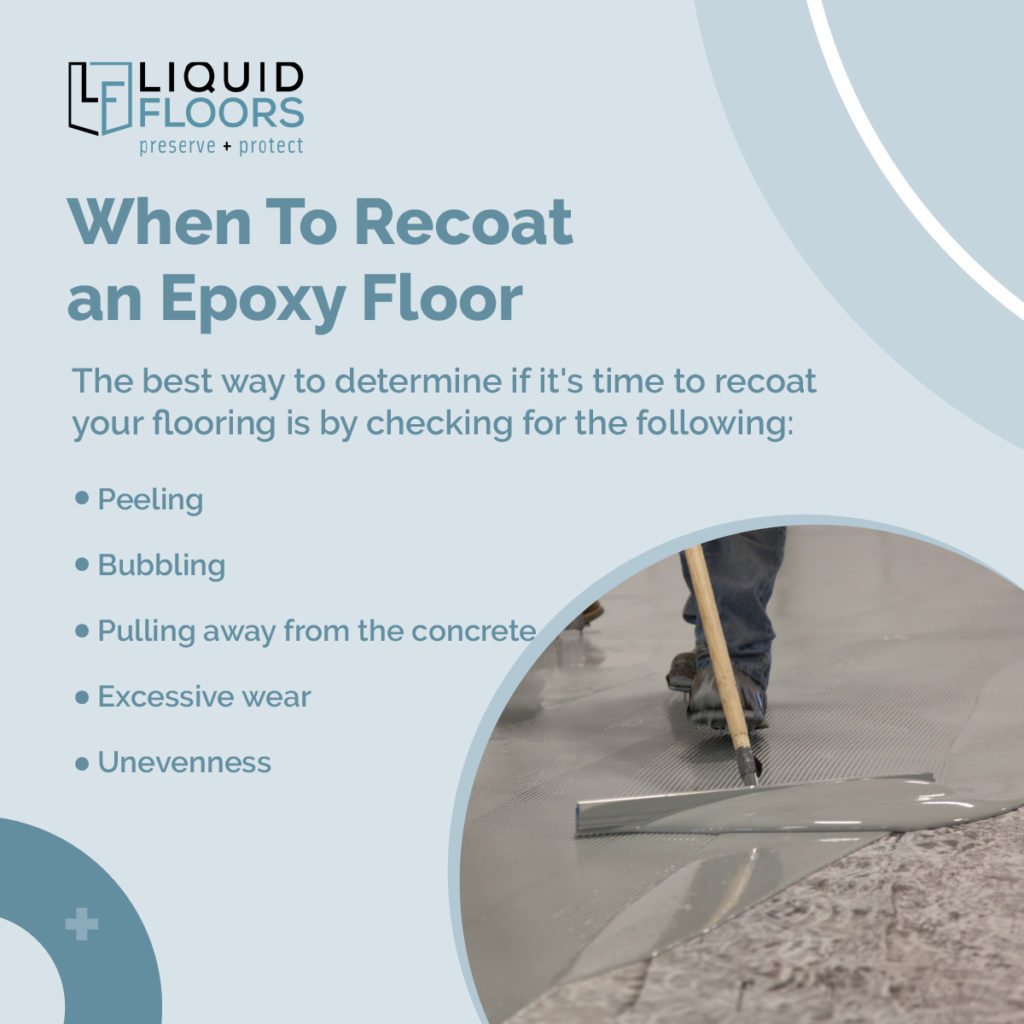
The best way to determine if it’s time to recoat your flooring is by checking for the following:
- Peeling
- Bubbling
- Pulling away from the concrete
- Excessive wear
- Unevenness
You can do the recoating process on your own if you wish. However, depending on the size of your space, it may be best to leave the recoating to the professionals. Recoating an epoxy floor includes buffing and sanding the previous coating, filling in any cracks or gouges, properly cleaning the floor, and then applying the coat of epoxy. It is a technical process that can be an arduous task, especially for large areas, such as warehouses and manufacturing facilities.
What is the Best Cleaning Agent for Epoxy Floors?
Warm or hot water is one of the best cleaners for epoxy flooring. Epoxy is typically made through a mixture of resins and hardeners and can be harmed with harsher chemicals. So, using water, a mop, and sometimes a mild soap is all you need to get rid of dirt and dust.
Ideally, you should use a non-alkaline, gentle cleanser that will not strip any of the coating off. If your space isn’t too large, a good solution is to dilute one-third cup of dishwashing soap into four or five liters of water.
Another option you can use is diluted ammonia. This cleaning solution doesn’t degloss your flooring over time and instead helps maintain the epoxy finish and can assist in restoring its anti-skid traits.
When using ammonia, you’ll want to mix it with hot water and only use approximately one-half cup of ammonia per gallon of water. This helps balance out the chemical impact and dilutes it just enough to ensure you’ll get rid of scuff marks or stains.
Be sure to remove any debris and sweep the area well before attempting to clean your flooring for the best results.
Cleaners You Should Not Use on Epoxy
There are tons of cleaners that you shouldn’t use to clean epoxy-coated floors. Many cleaners contain chemicals that are too harsh on the resin-based flooring.
Common cleaners you shouldn’t use on epoxy flooring and ingredients to avoid when selecting a cleaner include:
- Most soap-based cleaners
- Citric acid
- Vinegar
- Bleach
If you choose to use heavy chemicals, diluting them is always the best option. If you can, avoid using bleach or other heavy chemicals. It’s best to clean with a little bit of warm water.
Should You Pressure Wash Epoxy Flooring?
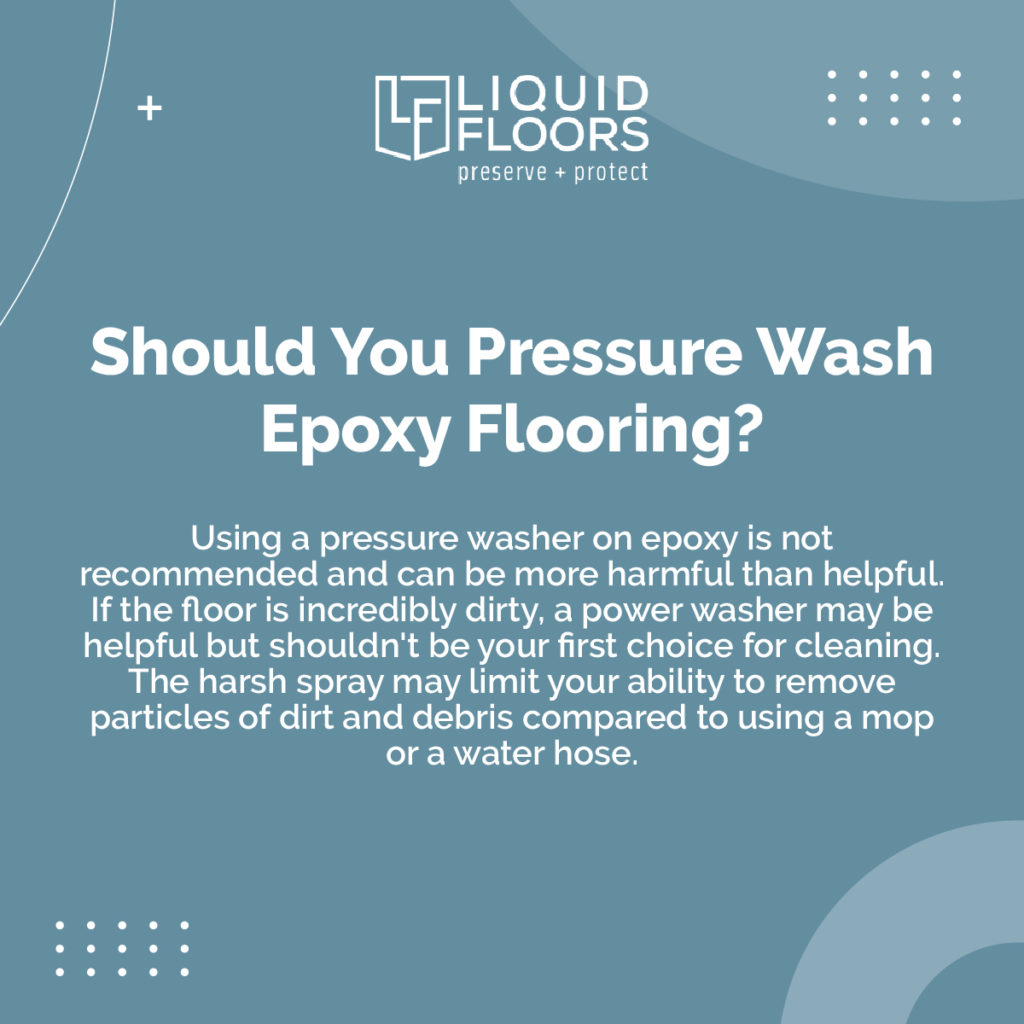
Using a pressure washer on epoxy is not recommended and can be more harmful than helpful. If the floor is incredibly dirty, a power washer may be helpful but shouldn’t be your first choice for cleaning. The harsh spray may limit your ability to remove particles of dirt and debris compared to using a mop or a water hose.
Still Have Questions About Epoxy Floors?
If you’re still curious about the best way to clean your epoxy floors, contact us to discuss how our services can help. We’ve carefully curated our list of services, and we’ve tested methods through a trial and error process to bring you the best solutions for all of your flooring needs.
With a mixture of light and heavy-duty equipment, we can help you keep your floors looking as if they’re brand new. Not sure where to start when it comes to maintenance and cleaning? We’ve got you covered.

